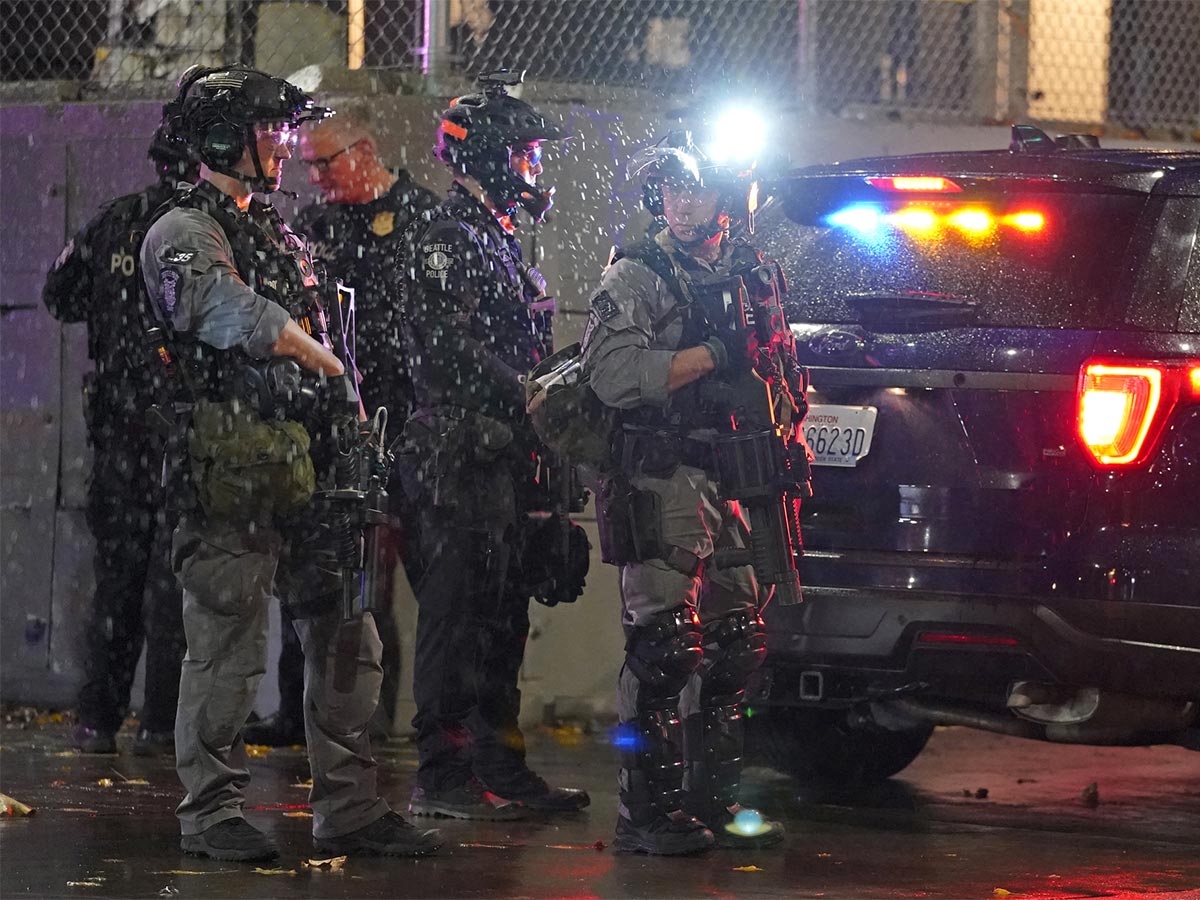This is a welcome development after the summer’s bitter impasse and growing dismay at the city’s performance.
Yet more is needed before Seattle finalizes its budget and locks in reform plans, to ensure the changes don’t make Seattle less safe and more inequitable.
Key will be establishing performance measures to know whether reforms, and any new programs receiving public-safety dollars, are working as promised.
This is critical policymaking. Seattle has been a model for how to reform policing and must show that further progress is possible.
Now, however, a majority of residents doubt the council can get it right, according to a new survey done for the Downtown Seattle Association.
It found 61% of Seattle voters overall — and 63% of voters of color — don’t trust the council to make significant police budget cuts “in a way that will address systemic racism while keeping our neighborhoods and downtown Seattle safe.”
Failing to address crime and public safety issues will compromise Seattle’s ability to revive its retail, hospitality and tourism industries. That hurts not only businesses but thousands of workers desperately needing jobs and stability to return.
This is a widespread concern. Seattle’s economic success is intertwined with the region’s and vital to the state.
Seattle leaders have multiple obligations, none of which can be sacrificed. They must continue addressing systemic racism. They must find better ways to handle behavioral health crises than dispatching police officers. Simultaneously, they must ensure public safety, which is their overarching responsibility.
One creative proposal would increase the HealthOne program. It responds to nonemergency crisis situations with Fire Department crews paired with a social worker.
Another would redeploy community-service officers, who now act mostly as liaisons, to reduce the use of armed officers for low-level calls.
Any big changes require cooperation between the executive and legislative branches. That’s starting to happen as the 2021 budget comes together this month.
For its part, the council is being more measured.
“There have not been the same level of really sweeping proposals to come in and significantly reduce the police budget in advance of standing up some of those alternatives,” council member Andrew Lewis told this board.
That doesn’t mean the council is in sync with the general public, however.
Lewis pledged to seek more police while campaigning last year but now believes Seattle can do with fewer officers. Perhaps his District 7 constituents in downtown, Magnolia and Queen Anne should remind him that violent crime there increased 40% over the last five years.
No wonder 60% of voters — including 67% of voters of color — oppose defunding the police department, according to the survey.
Meanwhile the number of Seattle officers is plunging because of attrition, to 1,203 in service in September. That’s the lowest in a decade during which population grew 23%, according to Police Department figures.
That’s also perilously close to the minimum needed to maintain court-ordered constitutional policing. Don’t forget Seattle has yet to convince the federal justice system it’s capable of running a police department without federal oversight.
Policing experts say too few officers increases the risk of unnecessary force being used. Reducing service levels also disproportionately hurts neighborhoods that experience higher crime levels.
Durkan proposed a 12% reduction in police spending. The council apparently gave up on its earlier talk of defunding by 50%. But it’s still likely to cut more than Durkan, so it can give millions more to nonprofits pitching community safety programs.
Before any public-safety responsibilities are outsourced to vendors, the council must include rigorous performance standards, including expectations for measurable outcomes.
Council members apparently value such accountability. They recently called for all sorts of budget provisos forcing the police department to provide regular performance reports, such as response times, or lose funding.
Such oversight is needed for all public-safety spending, if the goal is to improve outcomes and build trust.
It’s good Durkan and the council are collaborating on public safety reforms. This important work must continue and be guided by everyone’s interest in making Seattle a safer and more just place for all.
